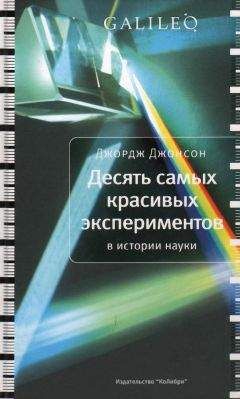Juliet Marillier - Wildwood Dancing
Tati took off her cloak. Sorrow folded it and laid it among the roots of an oak, his eyes never leaving her. A shaft of moonlight illuminated my sister in her delicate gown—her hair tumbling down her back as dark and shiny as a crow’s wing, the curves of her body revealed through the sheer, floating silk. She reached out a hand; Sorrow took it in his as if it were something precious. There was no longer a shred of doubt in my mind that Tati had worn the butterfly gown for him. It was a gift—a gift for his eyes only.
They danced. All by themselves, beyond the farthest fringe of the crowd, they circled and swayed, met and parted, turned and passed. Even when the steps of their dance drew them apart, their heads turned to look, and look, and look, as if they would drown in each other’s eyes.
“What is she thinking of, Gogu?” I whispered. “She must have gone mad!”
I’m cold. Gogu gave an exaggerated shiver. Can we go home now?
Why didn’t it surprise me that Tati was the last sister to come down to the boats? I saw where Sorrow had beached their craft at some distance along the shore, half concealed by reeds. I stood with Sten as my other sisters stepped into their boats and headed off across the lake with their escorts. The mist wreathed the water thickly in this predawn hour: in the 75
swirling white I could see strange shapes—wyvern, dragon, manticore. Gogu’s trembling felt about to dislodge him from my shoulder. I tucked him into the glove and into the pocket. “It’s all right, Gogu.”
Dawn, I thought. Since last Full Moon, I had asked Paula a lot of questions about Night People. She’d told me they lost their powers with the rising sun. If I could get Tati out of here safely, she’d come back to herself. Once home, I would be able to make her see sense. Just as long as she could drag herself away in time.
“Ready?” Sten had one big foot in the boat, one on the shore, and a hand extended to help me aboard.
“I’m waiting for my sister.”
“She’s there.” The troll jerked his head. It was true. In the moment I had turned away, Tati and Sorrow had emerged from the trees, a discreet distance apart: he with her cloak over his arm, she a vision in the sheer embroidered gown. Once she set foot on the home shore, she would be freezing.
“Good,” I said grimly. “Let’s go.”
Sten was in fine form. We crossed the Bright Between in a trice, leaving a pathway of roiling water and splintered ice behind us. Next in was Iulia with Grigori, followed by Paula and then Stela. The air on this side was so chill I could feel my face going numb. Deep in the pocket, Gogu was immobile.
We waited, huddled into our cloaks and hats and mittens, trying to escape the cold.
“Hurry up, Tati,” muttered Paula. “It’s hardly a morning for a leisurely boating expedition.”
We waited longer. Sten picked his teeth. The dwarf 76
tapped his foot, sighing loudly. Grigori put his arms around Iulia to keep her warm.
“He’d want to make haste,” said the dwarf. “The sun will soon be up.”
The boat’s high prow broke the mist then, coming slowly.
It touched the shore a little way from us. Tati alighted, still without cloak, hood, or boots. Sorrow got out after her. She turned her back to him; he unfolded her blue cloak and placed it around her shoulders. He did not touch my sister an instant longer than was necessary, and yet there was something in the way his hands lingered above her shoulders, as if he would embrace her if he dared, that was as tender as any caress might be.
Tati turned to thank him. He bowed his head, then took her hood and boots from the boat and gave them to her. We waited while she put them on, balancing with one hand on Sorrow’s shoulder to take off her dancing slippers. He stood immobile, pale face set, eyes bleak. The name he had chosen was apt enough; I had never seen anyone with so many different ways of looking sad.
“Goodbye,” I heard Tati say, but Sorrow said nothing at all. His eyes spoke for him.
“Come on, Tati,” mumbled Iulia through chattering teeth.
“It’ll be time to get up before we even go to bed.”
Above us, beyond the swirling mist that blanketed the water, the sky was beginning to lighten. The other boatmen were climbing aboard their craft. None wished to be on this shore at sunrise.
Tati reached up a hand. She brushed Sorrow’s cheek with her fingers, as lightly as the touch of a butterfly on a flower. He 77
closed his eyes, and the ashen pallor of his cheeks warmed with the faintest of blushes. An instant later Tati was by my side and, to the tinkling music of ice fragments shifting in the water and the solitary hoot of an owl, five little boats slipped away through the mist to the Other Kingdom.
We’re safe, I told myself as always. But it seemed to me that although we had crossed the margin to our own world and were on our way home once more, this was no longer true.
78
Chapter Four
Vârful cu Negur˘a was full of lovely things. The house had floors of marble and of fine polished wood, broad passageways, and sweeping staircases, and it was tended by a host of well-trained servants. Aunt Bogdana’s coffee cups were of fine porcelain, and she served tiny, exquisitely decorated cakes. For a woman who values beauty, a merchant makes a good husband.
It was the day of the autumn stag hunt, and Paula and I were keeping our aunt company. We were expecting to drink a lot of coffee before the day was over. Aunt Bogdana’s maid-servant Daniela moved quietly in and out of the sewing room to replenish the refreshments. Uncle Nicolae and Cezar had ridden out early, armed with crossbows and accompanied by a troop of men from the district, dogs at heel. We had been invited to ride with them, as several women were accompanying their husbands and it was considered quite respectable for us to go along. Iulia was the only one of us who had accepted. She 79
loved to ride, and the lack of a horse of her own had long been a sore point.
Hunting did not appeal to me. The forest king, Marin, with his golden hair and noble bearing, had often reminded me of a stag in his prime. I sensed there was not much difference between other hunt quarry such as wolf, boar, or wildcat and certain of the stranger denizens of the Other Kingdom. Besides, it wasn’t fair to leave Paula to entertain Aunt Bogdana on her own. Stela had a cold, and Tati had been all too willing to stay home and tend to her.
“I’m sorry Tatiana could not be here today. I wanted to have a word with her,” Aunt Bogdana said, sipping her coffee. “But I do applaud her responsibility in watching over little Stela. Of course, at sixteen Tati should be married and thinking about children of her own. It’s time you older girls were introduced to a wider circle of eligible young men. Don’t look at me like that, Jenica. Your father’s a man—he doesn’t understand that suitors won’t simply come knocking on the door. One does need to act.
In your own case, some attention to grooming and deportment would not go astray. Teodor will be wanting to see you settled securely. Especially now, with his health so frail.” She set the tiny cup down. “You must look to your future, girls.”
I saw the expression on Paula’s face and spoke swiftly. “Father’s physician told him he’d likely make a full recovery,” I said. It was only a slight embroidery of the truth. “He just needs rest and warm air.”
Aunt Bogdana was not easily diverted. “A party,” she said, eyeing me sharply. “That’s what Teodor should have done, 80
given a grand party for you, with music and dancing—an opportunity for you to mingle with the young men of the district.
As it is, you never go out. Nobody ever sees you. I wonder if Nicolae would agree to hold some kind of entertainment here?
He does love his music.”
There was a wistful look on my aunt’s face. She wore her hair covered by a demure lace cap, and her gown, though of the finest fabric, was plain in design and dark in color. I thought I could remember a time, before Costi’s death, when she had dressed in bright silks and worn feathers in her hair. There was a picture of him on a shelf near her chair, right next to an icon of Saint Anne. The little painting had been done on Costi’s tenth birthday. I could not look at it without feeling the terror of being on the raft and drifting away, away, into the mist.
Looking into Costi’s painted eyes, I saw Cezar’s frightened tears and heard his voice stumbling through the story. . . .
“We do go out, Aunt Bogdana,” Paula said as she darned the worn heel of a stocking. We had brought a basket of mending with us, anticipating a long day. “What about church in the village? We meet everyone there. Father’s taken us to all the guild houses in Bra¸sov. We do see people.”
“There’s seeing and seeing, ” Aunt Bogdana said weightily.
“Conducting business in merchants’ counting-houses is hardly the same as dressing up and letting folk look at you. A young man needs to view a girl at her best. A young woman clad for dancing is like a dewy flower—she catches and holds the eye.”
I met Paula’s glance and looked hastily away. Gogu poked his head out of my pocket. If you were a flower, you’d be pondweed.
81
“We won’t be having any parties until Father is back home,” I said. “But thank you for the suggestion, Aunt.”
Aunt Bogdana glanced at me. “Jenica,” she said, “for a girl of fifteen, you are somewhat bold in your responses.” Her tone was kindly; I knew she meant well. “Your father . . .” She sighed.
“He’s a lovely man, but he will insist on going his own way, and that does you no favors, my dear. Suitors won’t care in the least whether you can add up figures and tell silk from sarcenet or jade from amber. It all boils down to manners and deportment, dress and carriage. And the need to keep your conversation appropriate. The frog is an issue. He may be a nice little creature, but he does tend to leave damp patches on your clothing.”
“Yes, Aunt.” There was no point in arguing. Aunt Bogdana was the valley authority on what was proper. “Cezar has already mentioned it.”
“Ah, Cezar . . .” With another sigh, Aunt set down her cup. Her eyes were on Costi’s picture. Daniela got up and bore the tray away. “Life can be very cruel, my dears, cruel and arbitrary,” Aunt went on. “I think sometimes it is particularly hard for women, as we cannot so easily divert ourselves with business affairs.”
“Some women do,” muttered Paula to her stocking.
“What was that, Paula?” Aunt Bogdana had sharp hearing.
“It’s true, Aunt,” I said, drawn into debate despite my best intentions. “Marriage and children need not be the only future open to us. Father speaks of women in Venice and other foreign parts who wield great influence in merchant ventures—women who manage business enterprises in their own right. I’m already helping Father quite a bit, learning as much as I can—”
82
“Say no more, Jena. That is not a path you can seriously con-template. Such women are not . . . respectable. At your age you cannot fully understand what I allude to. Only a certain kind of female seeks to enter the masculine realm of commerce, or indeed”—she glanced at Paula—“that of scholarship. Our strengths lie in the domestic sphere. A truly wise woman is the one who knows her place. You need suitable husbands. They won’t just chance along. You must make an effort. Being a man, your father simply doesn’t understand. That he has never provided dancing lessons for you illustrates that. There is no point in appearing at a party if all you can do is step on your suitors’
toes. Don’t smirk, Paula. This is not a joking matter.”
“No, Aunt,” we chorused.
“Of course,” Aunt Bogdana went on, “if your poor dear father does recover his health, this will become less of an issue for you, Jena.”
“Oh?” My attention was caught.
“My dear, we all accept that Tatiana will marry first. For all Teodor’s neglect of the upbringing suitable to young ladies, your elder sister has great natural charm, and her manners are at least acceptable. She will do well enough for herself, given the right introductions. As the second sister and somewhat less . . .
As the second sister, it would be entirely appropriate for you to remain at home and look after your father. Teodor will never take another wife; he was devoted to Bianca. He’ll need a companion in his old age. That is one advantage of producing so many girls.”
I could feel Gogu’s outrage in every corner of his small form, even through the woolen fabric of my gown.
83
“I expect that one of us will stay at Piscul Dracului, married or unmarried,” I said, struggling to stay courteous. “We love the house, we love the forest, and we love Father. Of course we wouldn’t leave him all alone.” It was interesting that our aunt never raised one obvious possibility: that one of us should wed Cezar. Not that any of us would want to. My sisters dis-liked him and I—I was not sure I wanted to marry anyone at all.
Not without love. And whatever I felt toward my cousin, it was not the kind of passion I had heard about in tales, the feeling that swept you off your feet and into a different world. It was foolish to expect that, of course. In choosing a husband, practical considerations almost always came before the inclina-tions of the heart. This was something Aunt Bogdana had explained many times before.
A certain expression had entered my aunt’s blue eyes, one I knew from experience meant she was planning something. “I’ll have a word with Nicolae on the party question,” she said. “It’s not yet too late in the season, if we move quickly. It is a long time since Vârful cu Negur˘a has seen a night of celebration.”
“There’s no need, Aunt Bogdana.” My heart sank at the thought of yet another complication in my busy existence.
“Believe me, Jena, there’s every need. What if the worst should occur? Nicolae is hardly in a position to support the five of you indefinitely. Of course, we must hope poor Teodor recovers from this terrible malady and that he returns to us by springtime. But, as good daughters, you are duty bound to prepare yourselves—”
Behind Aunt Bogdana, the door of the chamber opened a 84
crack. I glanced up, surprised that Daniela had been so quick.
Instead my eyes met Iulia’s, and I turned cold. She was standing just beyond the doorway, motioning frantically for me to come out. We had not expected the hunt back before dusk. My sister’s face was pinched and strange, her eyes dark with shock.
She stayed out of view of both Paula and our aunt.
“Excuse me a moment,” I said, putting down my handiwork and going casually to the door.
The moment I stepped out, Iulia clutched violently at my arms. She was babbling something about the snow and an arrow. “The blood,” she kept saying. “So much blood.”
I drew her along the hallway, out of Aunt Bogdana’s earshot. “Take a deep breath, Iulia, and tell me slowly.” I was starting to hear noises from outside now, horses’ hooves, men calling out, doors slamming, running steps on gravel. “That’s it, good girl. Now tell me. What’s happened?” My heart had begun to race.




